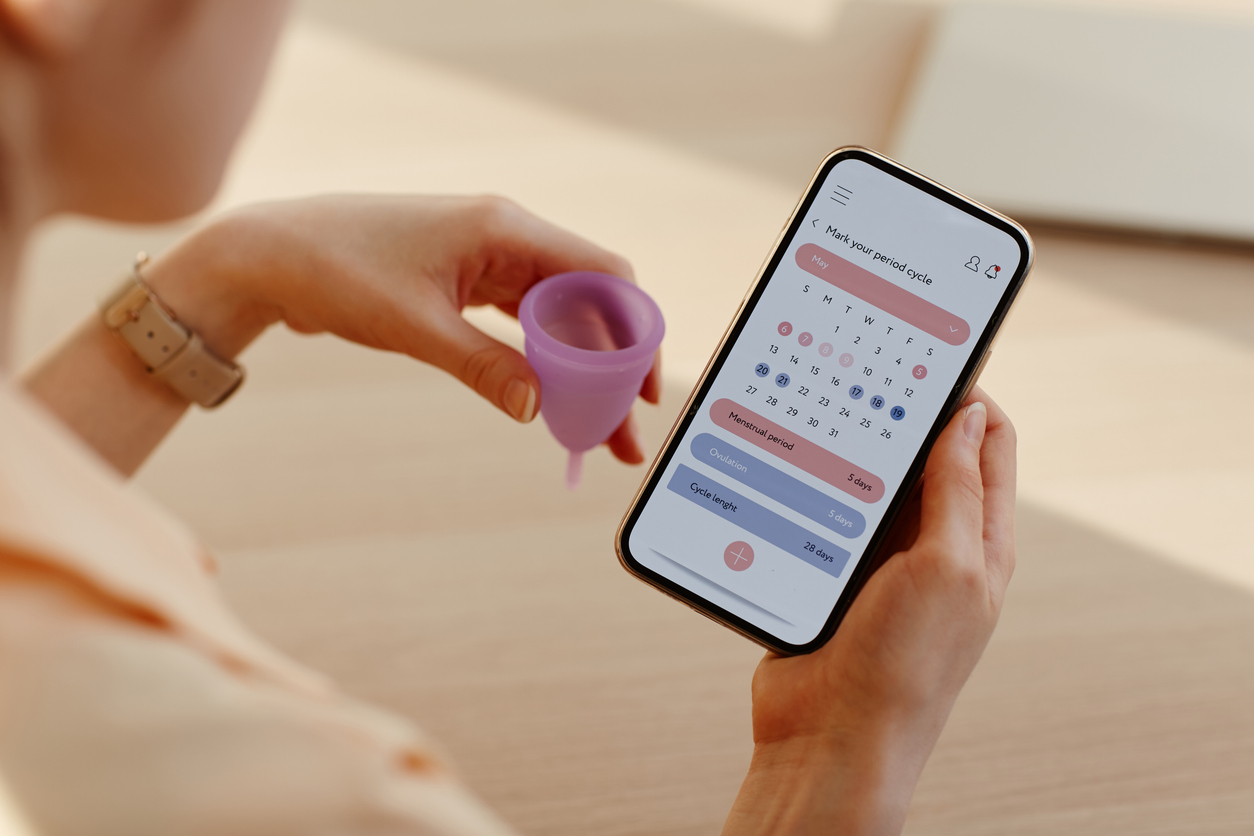Ever felt all the usual period symptoms — cramps, bloating, mood swings — but when you rush to the bathroom, expecting to see red, you're met with... absolutely zilch. What gives?
It’s confusing and frustrating, and honestly, it feels like your body’s playing some sort of practical joke on you. But you’re not alone! Let’s break down what’s going on, why it happens, and what (if anything) you can do about it.

What is a phantom period?
A phantom period, also called a "phantom flow" or "ghost period," is when you experience typical period symptoms — cramping, tender boobs, bloating, mood swings — but your actual period is MIA. No blood, just the feeling of a period.
Some people experience this occasionally, while others get it more often. It can last anywhere from a day or two to a full week, mirroring a normal menstrual cycle but without the main event.
This phenomenon can be confusing and even a bit frustrating. After all, if you're going to feel like you're on your period, shouldn't you at least get the satisfaction of crossing those days off your calendar? But our bodies are complex machines, and sometimes they like to keep us on our toes.
Are phantom periods normal?
Short answer? Yes! Phantom periods are more common than you might think. Our bodies are intricate systems with hormones that fluctuate throughout the month. Sometimes, these hormonal changes can trigger period-like symptoms without the actual bleeding.
While phantom periods every now and then are generally nothing to worry about, it's always a good idea to pay attention to your body, especially if they’re happening more often. If you're experiencing severe pain or if these phantom periods are interfering with your daily life, don't hesitate to reach out to a healthcare professional.
How long do phantom periods last?
The length of a phantom period varies from person to person. For some, it might just be a day or two of mild cramps and bloating, while others might feel like they’re stuck in an endless PMS cycle for a week or more.
Typically, phantom periods last about as long as a normal premenstrual phase — anywhere from a couple of days to a full week. If your symptoms drag on for longer or feel particularly intense, it might be a sign of an underlying hormonal imbalance or another health issue that’s worth checking out.

Why do I feel like I'm on my period but nothing's coming out?
There are quite a few reasons why your body might be tricking you into thinking you’re on your period when you’re not. Here are some of the most common ones:
Stress (because of course)
Stress messes with everything, including your hormones. When you’re stressed, your body releases more cortisol, which can disrupt the delicate balance of estrogen and progesterone, making your cycle go haywire. You might get all the symptoms of a period but without the bleeding.
Studies have shown that stress can delay or even skip ovulation entirely, which could explain the missing period.
Medical conditions
If your hormones are out of sync, your body might go through the motions of a period without actually shedding the uterine lining. Conditions like Polycystic Ovary Syndrome (PCOS), endometriosis, or thyroid disorders can cause irregular cycles and phantom periods.
Ovulation pain (Mittelschmerz, if you want to be fancy)
Some people experience ovulation pain, called Mittelschmerz (German for “middle pain” because it happens mid-cycle). This can feel like period cramps even though you’re not actually on your period.
Birth control
Hormonal birth control (like the pill, implant, or IUD) can suppress your period or make it irregular. But your body still produces hormones that can mimic PMS. So, you might get the cramps, the mood swings, even the bloating — just minus the bleeding. Certain birth control methods can cause "withdrawal bleeding" or no bleeding at all while still maintaining some cycle-like symptoms.
Perimenopause
If you’re in your late 30s or 40s, your body might be entering perimenopause, the transitional stage before menopause. Hormone fluctuations can cause irregular cycles, meaning you might feel like your period is coming but then… nothing. As your estrogen levels start to dip, cramping can intensify, and periods can get more irregular.
Pregnancy (it’s possible)
Early pregnancy can come with symptoms eerily similar to PMS — cramping, breast tenderness, mood swings. If your period is MIA and there’s a chance you could be pregnant, take a test to be sure.
Recent hysterectomy
As OB-GYN Dorothy Bestoyong, DO, explains, "... if someone had a hysterectomy but still had their ovaries (ovarian preservation), they may still ovulate and therefore get the symptoms of having their period, or about to have it, but they do not bleed, since they don't have their uterus."

Why does my period feel like it's stuck?
Ever feel like your period is right there, but just can't seem to make its grand entrance? This sensation of a "stuck" period can be frustrating and uncomfortable. It might feel like your body is all revved up with no place to go. Why?
- Cervical stenosis: A narrowing of the cervix that can make it harder for blood to pass through.
- Endometriosis: A condition where tissue similar to the uterine lining grows outside the uterus, causing pain and irregular bleeding.
- Uterine fibroids: Noncancerous growths in the uterus that can lead to pressure and cramping without an actual period. One study discusses how fibroids can lead to cycle irregularities and period-like pain without full menstruation.

Treating phantom periods
While phantom periods are usually harmless, they can still be annoying. Here are a few tips to help manage the symptoms:
- Track your symptoms: Keeping a record can help you identify patterns and predict when these phantom periods might occur. It might just be that your calculations are a bit off.
- Practice stress-reduction techniques: Since stress can contribute to hormonal changes, try incorporating relaxation techniques like yoga or meditation into your routine.
- Maintain a healthy lifestyle: Regular exercise, a balanced diet, and adequate sleep can help regulate your hormones.
- Consider over-the-counter pain relievers: If you're experiencing cramps or discomfort, OTC pain medications might provide some relief.
- Talk to your healthcare provider: If phantom periods are frequent or bothersome, your doctor might suggest additional treatments or tests to rule out any underlying conditions.
Phantom periods are annoying, but they’re usually nothing to panic about. That said, if you’re regularly getting all the symptoms of a period without the bleeding, it’s worth digging a little deeper. Your body is always communicating with you — sometimes, it’s just a little cryptic.
Listen to what it’s telling you, take care of yourself, and when in doubt, check in with a healthcare provider. You deserve to feel good in your body, period (or no period).
Tassia O'Callaghan is an experienced content writer and strategist, having written about a vast range of topics from chemical regulations to parenting, for brands like Peanut App Ltd, Scary Mommy, Tally Workspace, and Office Christmas. She's an advocate for realistic sustainable living, supporting small businesses (author of A-Z of Marketing for Small Businesses), and equity across all walks of life. Follow her on LinkedIn or TikTok, or see more of her work on Authory or her website.


.jpg)

.jpeg)




































.jpg)








.jpg)





























































.jpg)



.webp)










